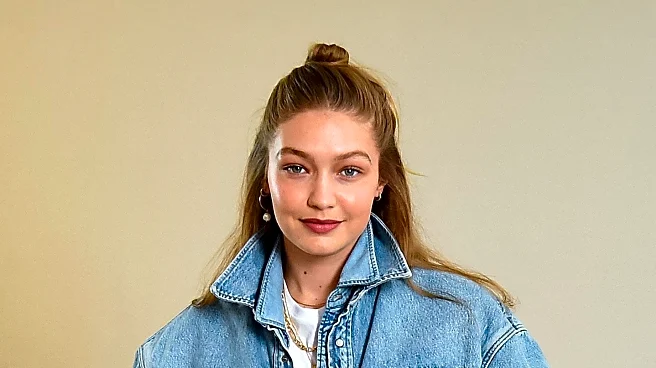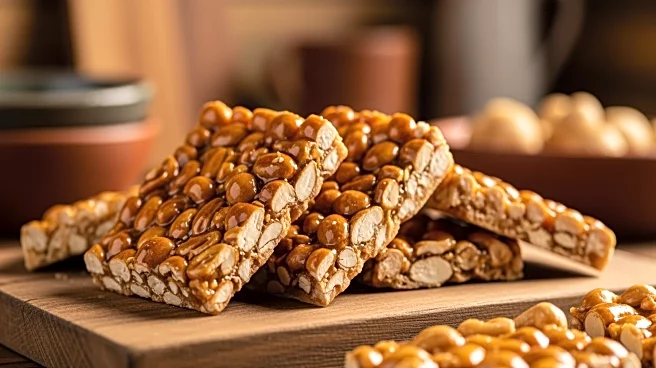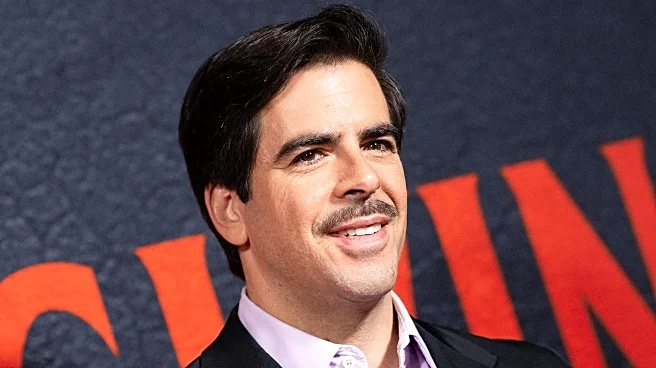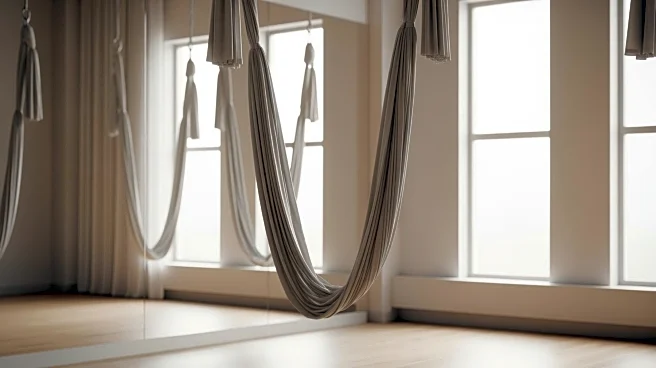What's Happening?
Rachel Comey, a renowned fashion designer, presented her spring 2026 collection in an intimate setting at Great Jones Alley in New York City. The event was characterized by a casual atmosphere, transforming into a happy hour after the fashion show. Comey emphasized the individuality and self-realization of the modern women she designs for by allowing models to do their own hair and makeup. This approach was intended to preserve the authenticity and character of the models, aligning with Comey's vision of designing for self-realized women. Celebrity makeup artist Romy Soleimani participated in the show, offering advice on minimal makeup techniques, such as focusing on hydration and avoiding excessive matte products to let the skin shine through.
Why It's Important?
Rachel Comey's decision to let models handle their own beauty routines highlights a shift towards authenticity and self-expression in the fashion industry. This approach challenges traditional norms where professional stylists typically dictate the appearance of models. By empowering models to showcase their personal style, Comey promotes individuality and self-confidence, potentially influencing other designers to adopt similar practices. This trend could lead to a broader acceptance of diverse beauty standards, impacting how fashion shows are conducted and perceived. It also reflects a growing movement towards inclusivity and personal empowerment within the industry.
What's Next?
The success of Rachel Comey's approach may inspire other designers to reconsider their beauty standards and practices during fashion shows. As the industry continues to evolve, there could be increased emphasis on personal expression and authenticity, potentially leading to more inclusive and diverse representations of beauty. Stakeholders such as fashion brands, makeup companies, and modeling agencies might explore collaborations that support this trend, fostering a culture of empowerment and individuality. Additionally, consumer expectations may shift towards valuing authenticity over traditional beauty norms, influencing marketing strategies and product development.
Beyond the Headlines
Rachel Comey's initiative to allow models to do their own hair and makeup could have deeper implications for the fashion industry. It challenges the conventional power dynamics between designers and models, promoting a more collaborative and respectful environment. This approach may also encourage models to embrace their natural beauty and individuality, fostering a sense of empowerment and self-worth. Furthermore, it could lead to a reevaluation of beauty standards, encouraging diversity and inclusivity in fashion. As the industry adapts to these changes, it may influence cultural perceptions of beauty and self-expression.










